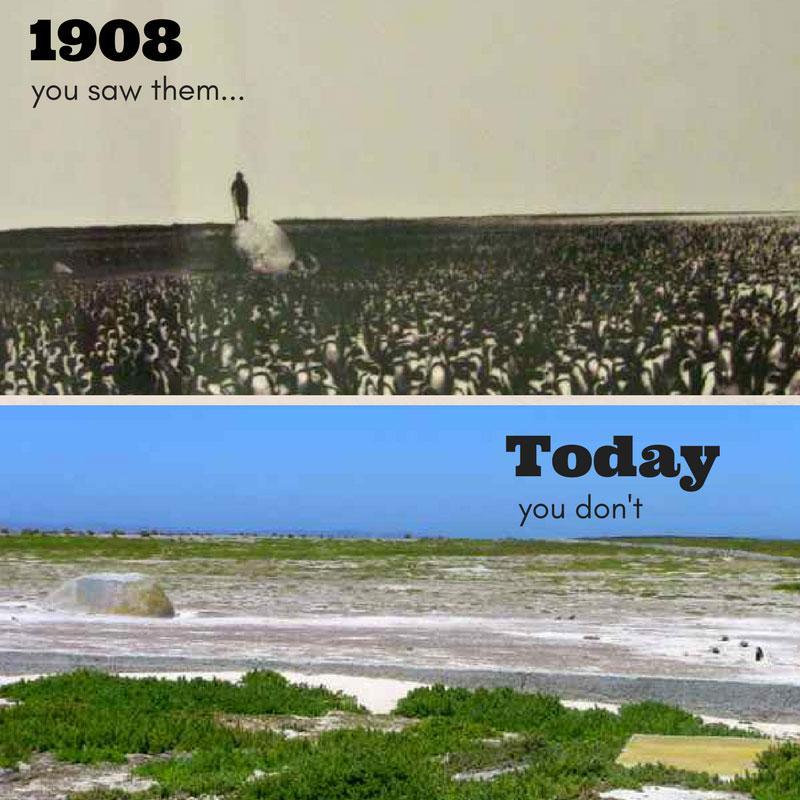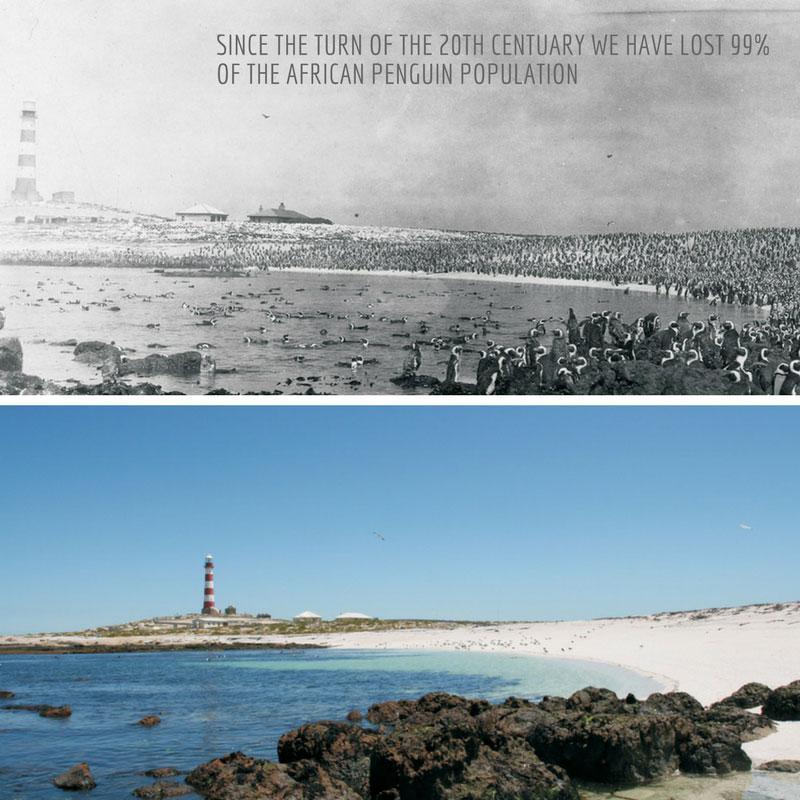Whale Watching in Hermanus
Hermanus is regarded as the whale watching capital of South Africa. By Land - By Boat - By Air
Hermanus is regarded as the whale watching capital of South Africa. By Land - By Boat - By Air
The Old Harbour Open-Air Museum is a provincial heritage site. It is unique in that apparently it is one of only two fishing harbours in the world that has been conserved in tact.
meanders for almost 11 kilometres along the coast from the New Harbour in the west to the estuary at the mouth of the Klein River in the east.
We all know that Africa is not for “sissies” and the African Penguin is a perfect example of African tenaciousness. The story of the African penguin is not a good story to tell. This iconic bird is on the brink of extinction. We have lost 99% of our African Penguin population through no fault of their own.

Forced removals:
Guano (an Inca word for a mix of eggshell, feathers, decayed corpses and bird excrement)
Before the advent of artificially produced fertiliser, guano was considered a top quality fertiliser rich in nitrogen, phosphorous and potassium. In the 1800s, which is when the “White Gold Rush” began, a ton of guano fetched ten pounds or more in London. That translates to 580.00 pounds per ton in today’s terms.
Before the advent of artificially produced fertiliser, guano was considered a top quality fertiliser rich in nitrogen, phosphorous and potassium. In the 1800s, which is when the “White Gold Rush” began, a ton of guano fetched ten pounds or more in London. That translates to 580.00 pounds per ton in today’s terms.
The guano was scraped from the penguin breeding islands. On Dyer Island, the guano layer was between 4-6m deep. Penguins used to build their nests by burrowing into the thick layers of guano. This “forced removal” from well protected, temperature controlled burrows to open surface nests, exposed the African Penguin to the harsh African heat and occasional flooding. This “open-plan” living arrangement turned their eggs and chicks into an easy meal for predators like gulls & skuas.
(As an aside: The acronym SHIT actually derives from the transport of guano. Because guano is rich in ammonia – the overwhelming ammonia fumes caused by the wet guano stored in the hull of ships, caused some serious health issues for sailors. It was therefore decided that guano bags must be stored in the middle of the ship to prevent it from getting wet. Bags were stamped with the acronym S.H.I.T to indicate that these bags must be Stored High In Transit.) One can therefore say that the African Penguin has directly contributed to one of the most recognisable words in the world.

“Eggicide”:
In the late nineteenth century, penguin eggs became a popular delicacy among the rich & famous. African Penguin eggs were served on the Titanic and every Wednesday as a breakfast delight in the South African parliament. It is weird to understand why, because the eggs have a very fishy smell and a green tint.
Between the 1920’s and mid-1950’s it is estimated that 48% of all African Penguin eggs were collected for human consumption. Egg collection on Dyer Island occurred from 1875 to 1968, with the largest annual harvest recorded in 1905, when 62 500 eggs were collected. On Dassen Island over 590,000 penguins eggs were harvested in one year. The impact of this “eggicide” is immeasurable.
Because penguins will lay new clutches if the first egg is unsuccessful, many pairs were pushed to their limits constantly laying new eggs as the harvesters took them away.
If an egg did manage to hatch, the chicks still faced the risk of being abandoned. The adult penguins must moult (replace their old feathers with a brand new set of feathers)annually. If they have bred late in the season, the adult will abandon the chick as they need to focus on their own energy needs to get them through the moult. During the moulting process they are not waterproof and they therefore cannot go to sea to hunt. These “late season” chicks will either starve to death on the island or venture into the ocean without the required amount of fat reserves to allow them to survive the challenges of the wild.
Did you know: The whites of penguin eggs, when boiled, do not set, although the yolk does.
Oiling:
Shortly after the “forced removal” & the ‘’green eggs for jam” period, came the “tar our feathers” incidents. The biggest of these incidents were when a ship called Treasure decided to park on Robben Island in the year 2000. Twenty thousand African Penguins were oiled.
Image
Over-fishing:
To add insult to injury, their bad luck did not end. The African penguin now faces the contemporary and frightening problem of the over-fishing of sardines and anchovies in particular. Dwindling fish stock are forcing penguins to travel further from home to feed, this would be OK if they only had to feed themselves, but when their chicks need feeding, travelling long distances for “take-out” is not ideal.
Predation:
African penguins have their natural enemies. Unfortunately some Cape fur seals have turned into lazy hunters. They do not travel the ocean to look for fish, they make the penguins do the hard work. They laze around the colonies, waiting for the penguins to return from their hunting trip, only to attack returning penguins for their stomach contents, alone. This new learned behaviour by seals, are further contributing to the demise of the African penguin.
What are we doing to turn the tide:
At the African Penguin & Seabird Sanctuary we know that #EveryPenguinCounts. We offer rest & recovery for the sick & injured, washing and rinsing for those who get tarred by all the small incidental oil spills. We work with CapeNature to remove abandoned chicks from the colony and to provide these chicks with a foster home until they can are ready to fledge and can face the perils of the Big Blue.
But rehabilitation alone will not prevent the extinction of this iconic species. We need to be pro-active. But rehabilitation alone will not prevent the extinction of this iconic species. We need to be pro-active. We educate and raise awareness because actions brings change.We focus on addressing the wrongs of the past by providing artificial nests – this is in ongoing project because it is not so easy to mimic nature. Penguin penthouses cannot be to hot or too humid so we team up with industry leaders to continuously improve the design in order to create the perfect penguin penthouse.
We lobby for the establishment of more Marine Protected Areas and Special no catch areas around penguin colonies to improve the habitat conditions.
What do you do if you come across a stranded penguin or seabird?
People often associate penguins with oil spills, but penguins do strand for a variety of other reasons including wounds, exhaustion, dehydration & disease. People often associate penguins with oil spills, but penguins do strand for a variety of other reasons including wounds, exhaustion, dehydration & disease. A penguin on the beach or rocks away from a breeding colony is normally a penguin in trouble.
072 598 7117
Call us and schedule your listing today! Contact Us
in and around Hermanus
With countless Southern Right Whales gathering along the Whale coast every year to mate and to calve
One for the Bucket list
Experience the exceptional and come face to face with a great white shark! Gansbaai also known as Shark Alley…
4 x Wine Routes
Hermanus is surrounded by 4 Wine routes, the Hermanus - (Hemel-and-Aarde); Stanford -, Elim - and Botriver Wine Route
![]()
in the Cape whale Coast
Hermanus is a spectacular seaside town with winding cliff paths, sloping green mountains, and deep blue waters.
Copyright © 2025 Hermanus Online Magazine. Web Development by Jaydee media.